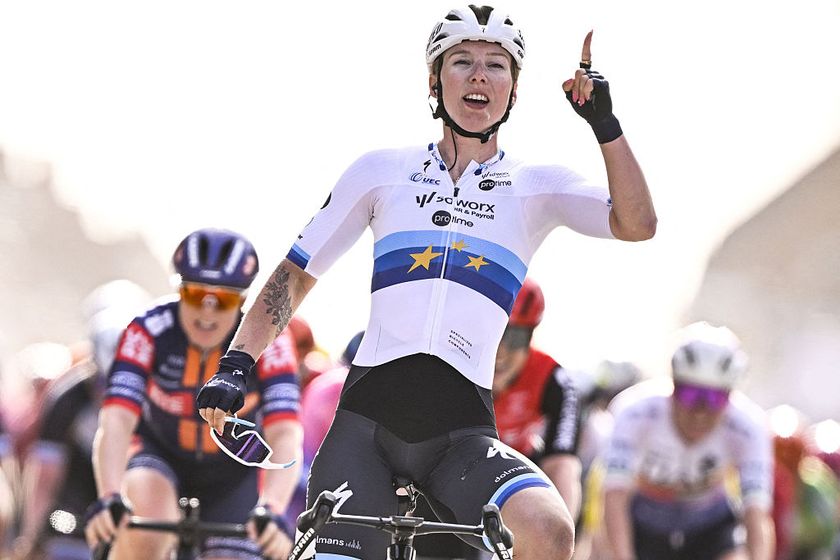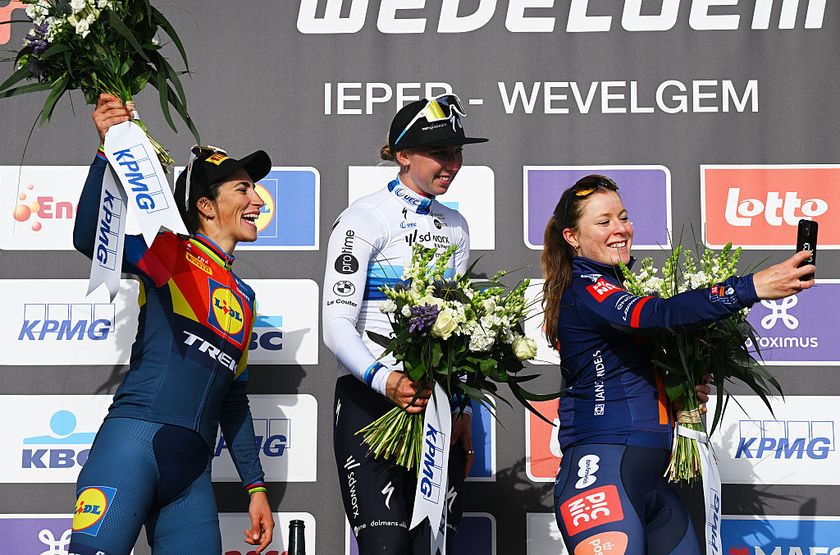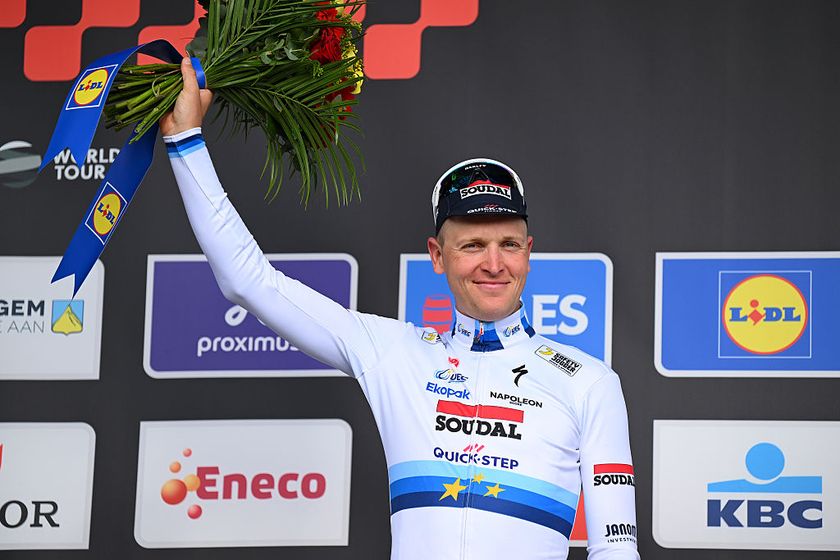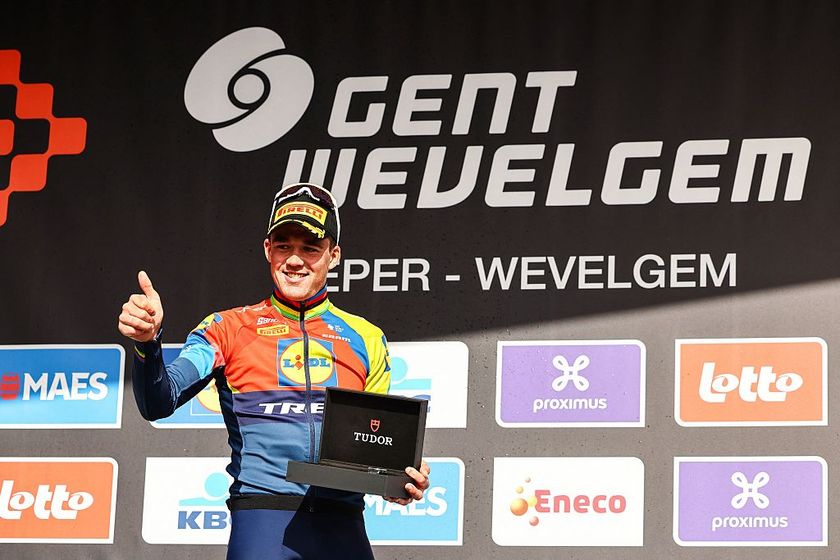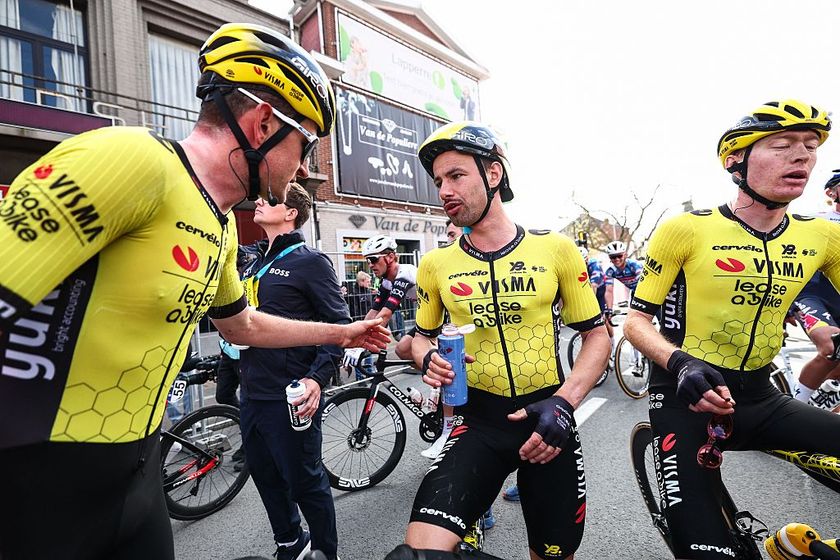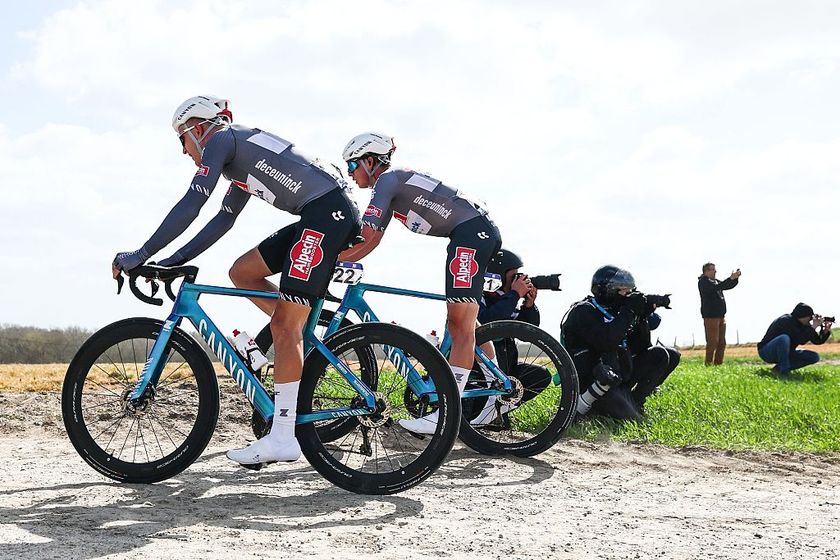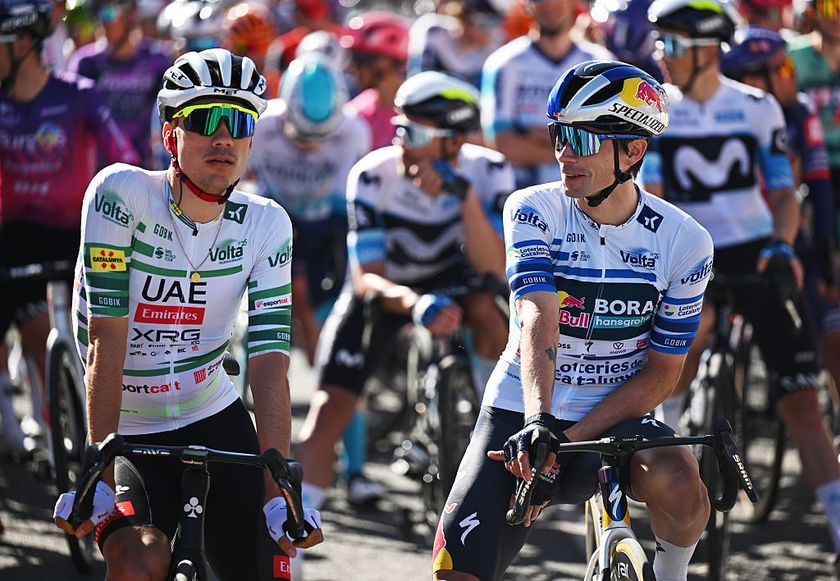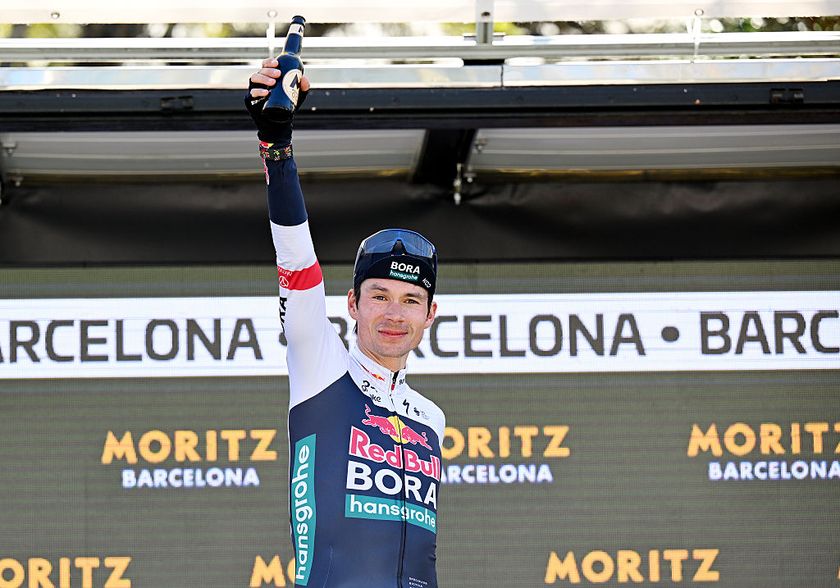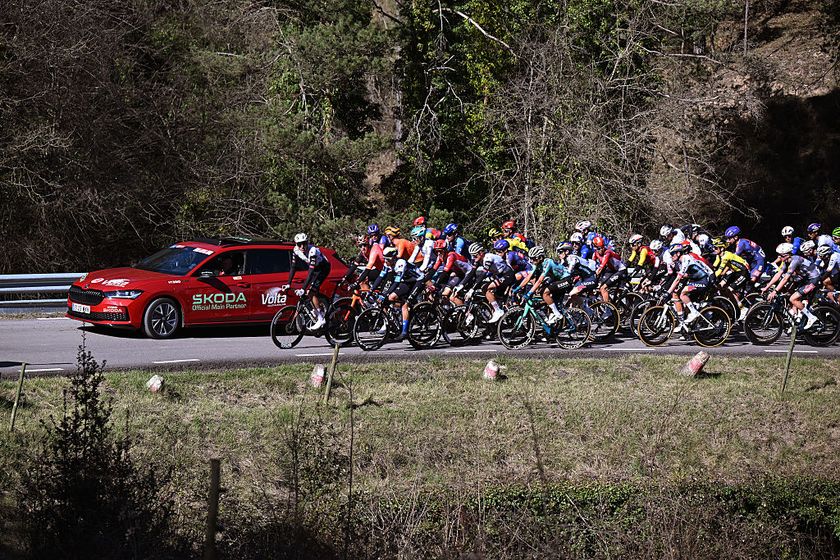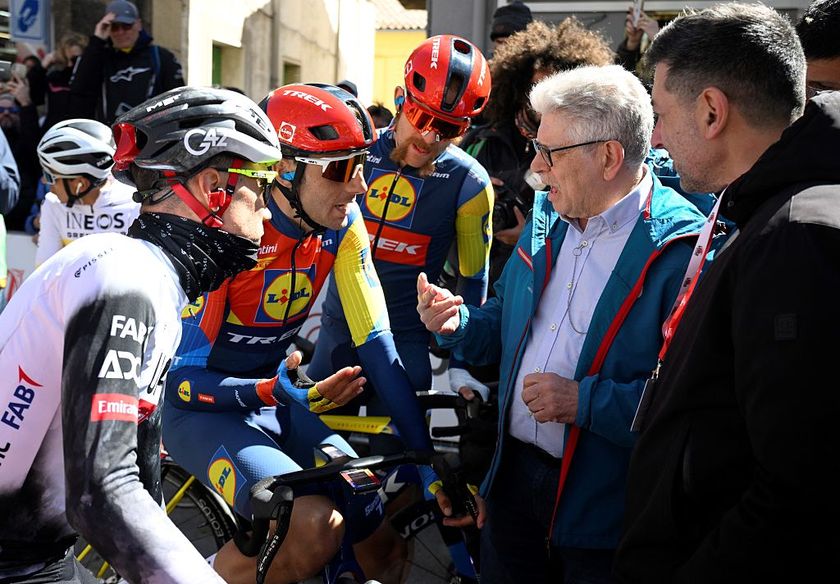5 more riders with a point to prove in 2016
Part two: Cavendish, Landa, Meintjes, Cancellara and Uran





The 2016 season is just around the corner, with the first race of the WorldTour, the Tour Down Under, beginning on January 19. We have plenty of champions to watch, but what about the riders who need to get a result next year or else?
In the second of a two-part series (you can read the first installment here), Cyclingnews takes a look at five more riders with a point to prove in 2016.
By adding Mark Cavendish to this list there will almost instantly be a comment below arguing that a man who has amassed 26 Tour de France stage wins doesn’t need to prove a thing to anyone.
Now, that’s a fair argument. After all, Cavendish has been the most dominant force within sprinting since his meteoric arrival, and it’s always easy to forget or somewhat diminish the staggering achievements he has accomplished simply because he made winning look so easy. However, if you’re won over by stats, then how about the following: In the last two calendar years, Cavendish has won a single Grand Tour stage. In the preceding two seasons, 2012 and 2013, that tally was 13, and in the two-year period before that again, 2010 and 2011, the tally was 15.
There are many factors in play when it comes to evaluating such a record. The Grand Tours may not have the same number of sprinter-friendly stages they’ve once had; the competition has become stronger, and more efficient; Cavendish has not had the same level of support seen since HTC; his 2014 Tour de France was ended by a crash on stage 1; and, to be blunt, he simply could have slowed. Take a wheel’s width of each of those points and you’ll arrive at today’s landscape – sprinting in the professional peloton does not have one superstar. It has many.
So Cavendish’s move to Dimension Data is a significant one, perhaps more so than his last transfer from Team Sky to Etixx-QuickStep. He won 14 times in 2015, and 13 the year before that but it’s at the Tour where Cavendish is effectively judged.
Get The Leadout Newsletter
The latest race content, interviews, features, reviews and expert buying guides, direct to your inbox!
Maybe you’re right, Cavendish doesn’t have to prove anything to us, but he does need to start winning Grand Tour stages again.
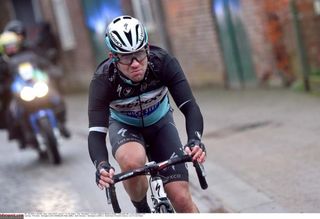
This time last year few would have predicted that in the twelve months to follow Mikel Landa would be on his way to Team Sky with the leadership of the Giro d’Italia in his programme for 2016. However, it has been an astronomical season for the Spaniard, with a ferocious performance at the Giro this year leading to two stage wins and third overall. Considering he hadn’t even cracked the top 25 in a Grand Tour before 2015, Team Sky has put a lot of stock in one three-week performance.
Landa was certainly a talented U23 rider and Sky, long term admirers, have pinpointed the 26-year-old as their next project, and in the process solidified their Spanish collective that includes Mikel Nieve, Xabier Zandio, David Lopez and Beñat Intxausti.
In 2016 Landa has one primary target: he has to prove that 2015 was no fluke, and in order to do so, he must defeat Vincenzo Nibali and his former team at the Giro d’Italia in May. Team Sky has yet to crack two Grand Tours in one season, and after failing with Bradley Wiggins and Richie Porte, the responsibility lies with Landa. No pressure there then.
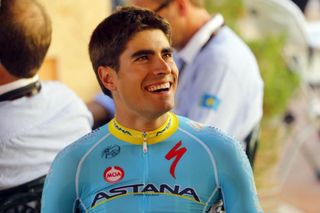
When the story of Meintjes’ move from MTN to Lampre was announced during the Vuelta the cycling world appeared genuinely shocked. Why would a South African rider, on a South African team leave such a comfortable home, and for Lampre? The derision on social media was as bright as Lampre’s fuchsia sleeves.
The move certainly caught the management of MTN on their heels, as they thought that a new contract had been agreed and that their home-grown star would stay for the foreseeable future. However, Meintjes had other ideas. The move to Lampre may appear somewhat leftfield and it’s certainly bold but that doesn’t mean it cannot be a success as the talented climber rekindles his working relationship with Brent Copeland.
So what point does Meintjes have to prove? For a young rider who is still finding his way it can be difficult to prove that changing teams was a success. For instance, Meintjes could fail to win a significant race in 2016 but if he learns how to lead, really lead, a team over three-weeks, who knows what that will do for his long-term aspirations.
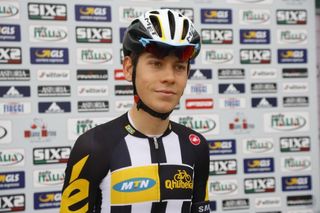
Like Cavendish, Cancellara makes this list despite a palmares that will already ensure that he is cast as one of the sport’s greats once he retires. Whether you’re a Cancellara fan or not, few would deny the multiple Paris-Roubaix and Tour of Flanders winner one final battle with his old foe Tom Boonen. However father time has caught up with the pair and they’re no longer the forces of nature they once were, sweeping through the flatlands, over bergs, and cobbles taking everything in their path.
There are now new riders moving up the ladder and 2016 could be the most openly competitive Classics season we’ve seen in some time. As we’ve seen, though, so much depends on health and at times luck, two factors that seem to have seeped from Cancellara’s aura in recent times. Can he equal the record for Roubaix wins and can he set a new record for wins in the Tour of Flanders? It’s not so much about proving a point, perhaps, as about solidifying a legacy.
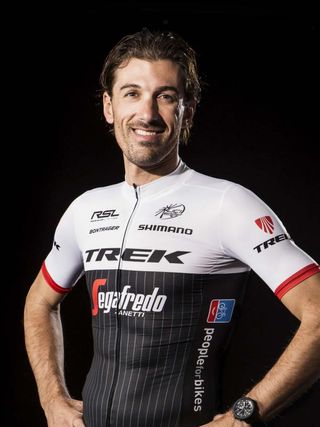
After consecutive podium finishes at the Giro d’Italia in 2013 and 2014, Rigoberto Uran was tipped by many as Alberto Contador’s most likely challenger at the corsa rosa in 2015 – particularly with the long time trial in Prosecco country on the menu – but the Colombian’s challenge never materialised. Ill before the race even began, Uran was never a factor in Italy and struggled to Milan in 14th place overall.
When talk of the transfer merry-go-round began in earnest during that Giro, it was quickly taken as an article of faith that Uran was certain to be one of the galacticos deemed surplus to requirements in Patrick Lefevere’s firmament at Etixx-QuickStep.
A return to Team Sky was rumoured at one point, but the British squad opted instead for Mikel Landa, and a lacklustre Tour de France showing did little to raise Uran’s stock as the transfer window opened in August. He was eventually picked up by Jonathan Vaughters’ Cannondale team, where he will form an interesting double act with fellow new arrival Pierre Rolland.
Uran did finish 2015 strongly with a fine win at the GP de Quebec, mind, and despite his disappointing Grand Tour showings, his balance sheet for the year wasn’t entirely negative, with decent displays at Tirreno-Adriatico (3rd) and the Tour de Romandie (5th) in the spring.
At 29 years of age and in the prime of his career, however, Uran is aware that the success or failure of his 2016 campaign will be dictated solely by his results over three weeks. Viewed as the coming man of stage racing when he left Sky two years, Uran dropped down the pecking order in 2015, and should not be lacking in motivation to reassert himself on the grandest of stages in the new year.
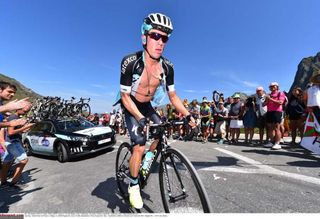
Daniel Benson was the Editor in Chief at Cyclingnews.com between 2008 and 2022. Based in the UK, he joined the Cyclingnews team in 2008 as the site's first UK-based Managing Editor. In that time, he reported on over a dozen editions of the Tour de France, several World Championships, the Tour Down Under, Spring Classics, and the London 2012 Olympic Games. With the help of the excellent editorial team, he ran the coverage on Cyclingnews and has interviewed leading figures in the sport including UCI Presidents and Tour de France winners.
